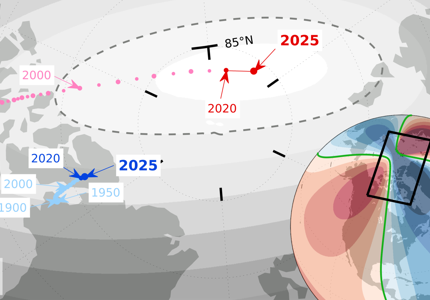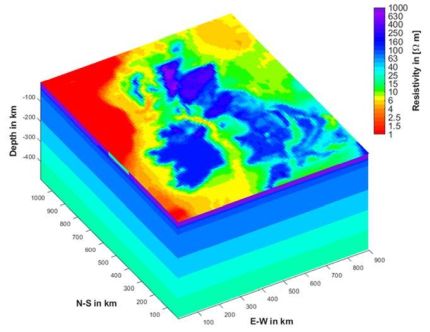PhD opportunities with BGS Geomagnetism
We invite applications from qualified and highly motivated students for four fully-funded postgraduate studentships. NERC doctoral training is delivered in partnership with a number of univeristies and other partners. Applications for the projects below close in early January 2021.
 |
Seeing the Northern Lights at the equator? Predicting the next reversal of Earth's magnetic field Summary: Apply recent advances in Machine Learning or Deep Learning to the prediction of Earth’s magnetic field. A trained neural network may be able to spot patterns in the data that have so far either not been noticed or have been too complex to interpret; such networks may be able to supply accurate short-time forecasts of the internally generated magnetic field. |
University of Leeds Apply by 5th Jan 2021 |
 |
Summary: New magnetotelluric data will enhance our knowledge of the electrical conductivity structure of the British Isles, enabling better assessment of the threat to infrastructure from space weather. |
University of Edinburgh Apply by 7th Jan 2021 |
 |
Sonar or Magnetism: exploring bat migration using a data science approach Summary: The project will use a data science approach to explore how bats use information from Earth's magnetic field to navigate during long-term migration. |
University of St. Andrews Apply by 8th Jan 2021 |
 |
Real-time Space Weather forecasting using satellite data and machine learning Summary: There are many potential sources of information which could be used to predict a space weather event including human-made forecasts, magnetic field measurements, solar disc imagery and data from geostationary satellites. We seek to combine such information to improve the real-time automation of forecasts of space weather between 1 to 72 hours ahead of time, aiding efforts to reduce the space weather hazard to ground- and space-based technological infrastructure. |
University of Edinburgh
|

